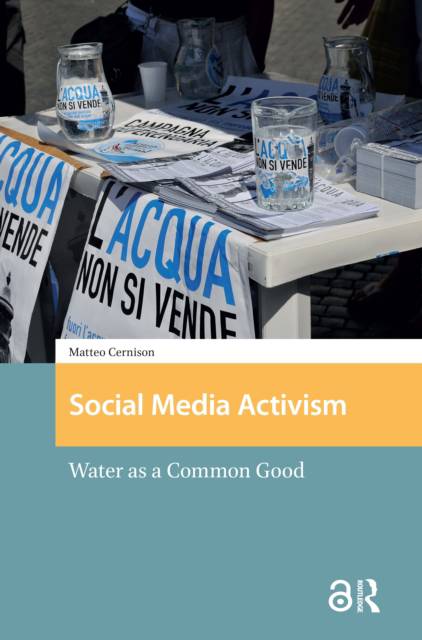
- Afhalen na 1 uur in een winkel met voorraad
- Gratis thuislevering in België vanaf € 30
- Ruim aanbod met 7 miljoen producten
- Afhalen na 1 uur in een winkel met voorraad
- Gratis thuislevering in België vanaf € 30
- Ruim aanbod met 7 miljoen producten
Zoeken
Omschrijving
Online and Off-line activism observed together Following the recent turn against virtuality in literature, I observed how activists combined traditional and new, digital and face-to-face strategies of communication. How to Investigate a Large Facebook Campaign Political activism on Facebook is very difficult to follow and trace. This is particularly true for very large campaigns, where thousands of activists elaborate their communication strategies in an almost independent way. Most literature focuses, therefore, on very small cases and groups, or on different online platforms. My work proposes a serious solution to this problem, analyzing in detail and at different scales the evolution of activism on a very complex and large Facebook campaign. Different Impacts of Internet on organizations The main question that most authors try to investigate while dealing with online forms of activism regards the influence of online technologies on mobilizations. Some of them (e.g. Mario Diani) indicated that this influence might be different for various forms of organizations. In my work I observed this "differentiated influence", evidencing that the use of social media might lead to an increased centralization and specialization of the organizations relying on professional resources, and to a decentralization of actions that leaves a key role to small, resourceless organizations.
Specificaties
Betrokkenen
- Auteur(s):
- Uitgeverij:
Inhoud
- Aantal bladzijden:
- 244
- Taal:
- Engels
- Reeks:
Eigenschappen
- Productcode (EAN):
- 9789462980068
- Verschijningsdatum:
- 27/02/2019
- Uitvoering:
- Hardcover
- Formaat:
- Genaaid
- Afmetingen:
- 155 mm x 236 mm
- Gewicht:
- 453 g

Alleen bij Standaard Boekhandel
+ 310 punten op je klantenkaart van Standaard Boekhandel
Beoordelingen
We publiceren alleen reviews die voldoen aan de voorwaarden voor reviews. Bekijk onze voorwaarden voor reviews.











